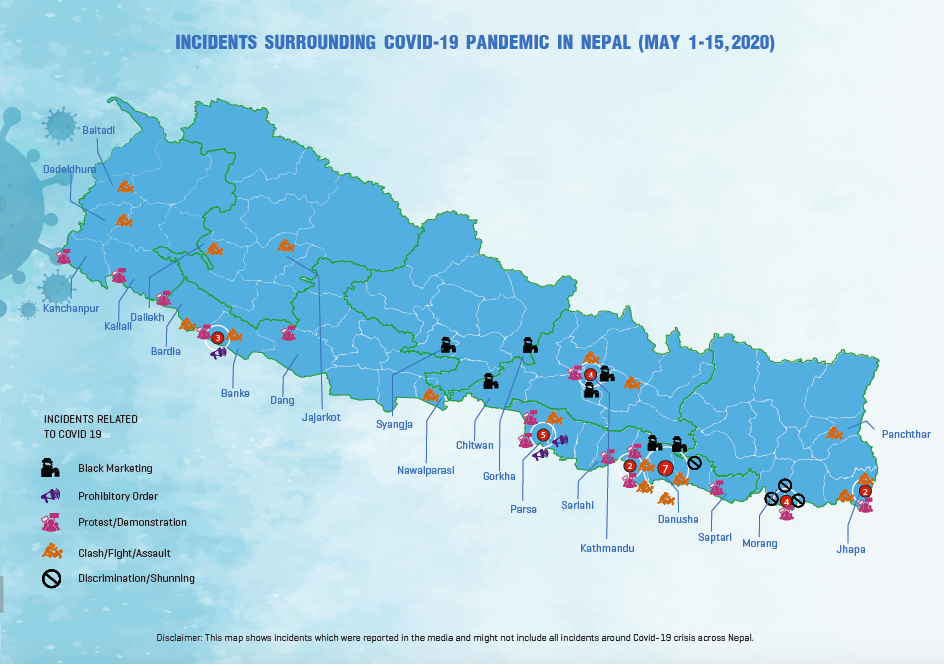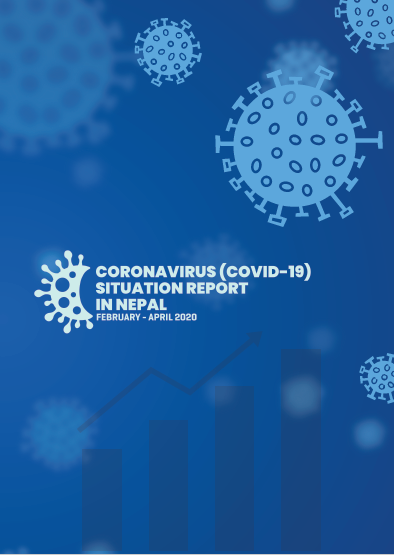Incident Reports
Babies at risk amid vaccine shortage
2014-12-22
Kathmandu, khop ko abhab hunukaran le garda balbalika haru jokhim ma.
The government’s failure to address frequent shortages of vaccines has worried the public and health experts who say fatal diseases could attack vulnerable segments of population during an immunisation gap.
A government report obtained by the Post shows it ran out of BCG vaccine, which immunises children against tuberculosis, for two months in March early this year. The 96,000 vials of the vaccine that it then procured did not last beyond mid-November. A stock count in mid-October read 15,001 BCG vaccines—448 vials short of the required number.
Last year, the Japanese Encephalitis vaccine was out of stock for three months starting in August--the peak transmission season for the disease.
With vaccine dearth hitting the country once again, experts say the government is jeopardising public health by crippling efforts to ensure that all babies are immunised against life-threatening diseases. If the shortage persists, an outbreak of diseases could be imminent.
“Everyone knew there would be a vaccine shortage. Sufficient effort was not made to prevent it,” says Dr Yasobardhan Pradhan, a public health expert.
Pradhan, former director general of the Department of Health Services, said such lapses will destroy public faith in health institutions.
The government administers 10 vaccines to children, free of cost. MR (measles and rubella) vaccine is administered to children between nine months and 15 years. Rubella virus causes rubella (also known as German measles or three-day measles) which is thought to be a mild childhood illness. Pregnant women are most vulnerable to Rubella. According to statistics, around 1,400 children are born with disabilities in Nepal due to the disease every year.
Children are inoculated with BCG vaccine against tuberculosis right after birth. The pentavalent vaccine, administered 45 days after birth, is a combination of five vaccines that protects children from five diseases, including diphtheria, tetanus and hepatitis-B. Vaccines are also administered against polio and measles. The Japanese Encephalitis vaccine is given to children older than two years in 30 high-risk districts.
Dr Sinendra Upreti, director general of the DoHS, blames procurement hassles for the delay in ensuring smooth vaccination coverage. “We have been asking Serum Institute, India, to provide quotations for the vaccine. They have not replied,” said Dr Upreti. “Vaccines will be available in three weeks though.”
The government has sought Unicef’s help to deliver the vaccine possibly by December 29. Dr Pradhan suggests multi-year procurement as a lasting solution.
Related Reports
GBV / Siraha
Complaint lodged against a 30-year-old man on the charge of raping a 13-year-old teenage girl in Siraha
December 26, 2023
GBV / Okhaldhunga
52-year-old man arrested on the charge of sexually assaulting a 16-year-old teen girl in Okhaldhunga
Province 1, Okhaldhunga, Sunkoshi, Ward 8
December 03, 2023
GBV / Rupandehi
Complaint lodged against a 22-year-old youth on the charge of raping a minor girl in Rupandehi
August 29, 2023
Related Trend Analysis
Analysis

THE NEPAL PEACE MONITOR ANNUAL REVIEW: 2020
October 25, 2021
Human Trafficking / LGBT+ Rights / GBV / Political / Children’s Rights / Senior Citizens’ Rights / HRD Issues / Human Rights / Interpersonal Violence / Governance / Covid-19 / Civic-Space / PwD



